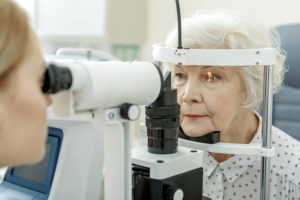
Cataracts can be a very complex and personal subject, and naturally, there tends to be a lot of misinformation out there. It’s important to know exactly what you’re getting into when you start on the road to recovering from cataracts, so here’s a list of the most common misconceptions in order to clear up some of them up.
Eye surgery, including cataract surgery, is extremely dangerous.
Fact: Laser eye surgeries are some of the safest medical procedures out there. Cataract surgery, in particular, has over a 95% success rate and is one of the most commonly performed operations in the U.S. Every surgery has a risk of complications, but you can minimize these risks by complying with doctor’s instructions before, during, and after the surgery.
Cataracts can be prevented through a combination of efforts.
Fact: While it’s true that taking actions such as wearing proper UV protected eyewear in the sun, quitting smoking, and eating lots of fruit and vegetables can help slow the process down, cataracts are an unfortunate part of life. The lens of the eye naturally clouds over with time. Certain conditions like diabetes, or eye injuries can also expedite the formation of cataracts.
Recovery from cataract surgery is long and painful.
Fact: Most patients have significantly improved vision immediately after the cataract surgery. You will need to be careful with your eyes over the course of the following months, because your eyes will be sensitive and vulnerable. However, you should not experience severe pain, just some slight discomfort for a week or so, perhaps. Even the surgery itself is virtually pain-free, as you will be administered specialized numbing eye drops. Similarly to the recovery process, there might be a period during the surgery (which lasts under an hour) in which you experience slight discomfort. If you are still anxious about the procedure, you may be prescribed a mild sedative to help you relax.
Eye strain contributes to cataract growth.
Fact: Cataracts are caused by proteins building up in the lens of the eye. Distorting and blurring vision. While straining your eyes (such as with too much screen time) can give you a whole host of other problems, it has nothing to do with cataract formation.
If you have more questions about the ins and outs of cataract surgery, try visiting our Cataract FAQ page, or if you live near Louisville, KY, you can schedule an appointment to talk face to face with one of our highly trained doctors.



